Keynote Speakers

18 - 20 December, 2024
IET London: Savoy Place
London, United Kingdom
Keynote Speakers
Speakers will be added as confirmed.
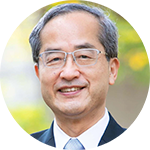 Yasuhiko Arakawa, The University of Tokyo, Japan
Yasuhiko Arakawa, The University of Tokyo, Japan
Title: Advances in Quantum Dot Lasers toward Practical Implementation
Yasuhiko Arakawa is a Specially-Appointed Professor and Director of Quantum Innovation Co-Creation Center, the Institute of Nano Quantum Information Electronics at The University of Tokyo. He received his PhD from the University of Tokyo in 1980 and became a full Professor in 1993. He served as the President of International Commission for Optics (ICO) in the term from 2024 to 2017 and is a Foreign Member of the US National Academy of Engineering (NAE) from 2017. He has authored more than 800 scientific journal papers and has given more than 500 invited presentations (incl. 95 plenary/keynote presentations) at international conferences. He received numerous awards, including Leo Esaki Award (2004), IEEE/LEOS William Streifer Award (2004), IEEE David Sarnoff Award, the Medal with Purple Ribbon (2009), C&C Prize (2010), Heinrich Welker Award, OSA Nick Holonyak Jr. Award (2011), the Japan Academy Prize (2017), IEEE Junichi Nishizawa Medal (2019), URSI Balthasar Van der Pol Gold Medal (2023), and honor of a Person of Cultural Merit (2023).
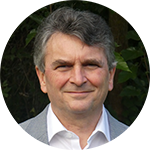 Roel Baets, Ghent University and imec, Belgium
Roel Baets, Ghent University and imec, Belgium
Roel Baets is an emeritus full professor at Ghent University (UGent) where he has led a mixed UGent – imec team. For about 40 years Roel Baets has worked in the field of integrated photonics, in multiple material platforms (silicon, silicon nitride, III-V). He has made diverse scientific contributions to this field, as well as to its applications and spin-off creation in telecom, datacom and sensing. He has led major research projects in silicon photonics in Europe and founded ePIXfab, the globally first Multi-Project-Wafer service for silicon photonics and now the European Silicon Photonics Alliance. In recent years his research has focused on medical and environmental sensing applications of silicon photonics. He is a Fellow of the IEEE, of the European Optical Society (EOS) and of Optica. He has been a recipient of the 2018 PIC-International Lifetime Achievement Award, of the 2020 Optica-IEEE John Tyndall Award and of the 2023 IEEE Photonics Award. As an emeritus professor Roel Baets continues a variety of advisory roles within UGent and imec, within ePIXfab and in the integrated photonics community at large.
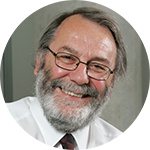 Sir Peter Knight, UK National Quantum Technology Programme, UKRI and Quantum Metrology Institute, UK National Physical Laboratory, UK
Sir Peter Knight, UK National Quantum Technology Programme, UKRI and Quantum Metrology Institute, UK National Physical Laboratory, UK
Title: Quantum Technology- from concept to devices
Knight is Senior Research Investigator at Imperial College where until 2010 he was Deputy Rector (Research). He was knighted in 2005 for his work in optical physics. Knight was the 2004 President of the Optical Society of America and 2011-2013 President of the Institute of Physics. He is Editor of Contemporary Physics, Chair of the UK National Quantum Technology Programme Strategy Advisory Board, chairs the Quantum Metrology Institute at the National Physical Laboratory, was until 2010 chair of the UK Defence Scientific Advisory Council and remains a UK Government science advisor. His research centres on quantum optics and quantum technology. He has won the Thomas Young Medal and the Glazebrook Medal of the Institute of Physics, the Ives Medal and the Walther Medal and Prize of the OSA, the Royal Medal of the Royal Society and the Faraday Prize of the IET.
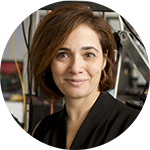 Michal Lipson, Coumbia University, USA
Michal Lipson, Coumbia University, USA
Title: Scalability of Silicon photonics
Prof. Michal Lipson is the Eugene Higgins Professor at Columbia University. Her research focus is on Nanophotonics and includes the investigation of novel phenomena, as well as the development of novel devices and applications. Prof. Lipson pioneered critical building blocks in the field of Silicon Photonics, which today is recognized as one of the most promising directions for solving the major bottlenecks in microelectronics. She is the inventor of over 45 issued patents and has co-authored more than 250 scientific publications. In recognition of her work in silicon photonics, she was elected as a member of the US National Academy of Sciences and the American Academy of Arts and Sciences. Her numerous awards include the NAS Comstock Prize in Physics, the MacArthur Fellowship, the Blavatnik Award, Optica’s R. W. Wood Prize, the John Tyndall Award, the IEEE Photonics Award, and an honorary degree from Trinity College, University of Dublin. In 2023, she served as President of Optica.
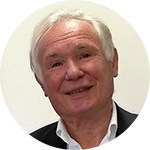 Prof Sir David Payne, University of Southampton, UK
Prof Sir David Payne, University of Southampton, UK
Prof D. N. Payne is an internationally distinguished research pioneer in photonics, having been in the field for over 50 years. Optical fibre technology is one of the greatest scientific successes of the last three decades and Payne’s contributions are acknowledged as seminal in many areas. Optical fibres underpin the internet, provide new laser capability and environmental sensing, and drive growth to the benefit of all nations. Payne’s work spans many diverse areas of photonics, from telecommunications and optical sensors to nanophotonics and optical materials. With his colleagues he has made many of the key technical achievements in almost every area of optical fibre technologies and his work has had a direct impact on worldwide telecommunications, as well as nearly all fields of optical R&D. As a result, he is the most highly honoured UK scientist in photonics. Payne’s pioneering work in fibre fabrication in the 70’s resulted in almost all the special fibres in use today. He led the team that in 1985 first announced the silica fibre laser and the Erbium-Doped Optical Amplifier (EDFA), the device that fuelled an explosive growth in the internet through its ability to transmit and amplify vast amounts of data. The EDFA is widely regarded as being one of the foremost and most significant developments in modern telecommunications.
